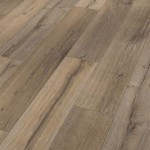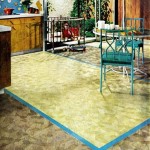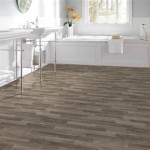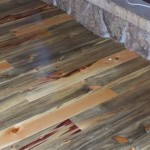Natural Stone Flooring: Essential Aspects to Consider
Incorporating natural stone flooring into your home can elevate its aesthetics and create a timeless ambiance. With an array of options available, choosing the right stone for your space requires an understanding of its unique characteristics. Here's a comprehensive guide to explore the essential aspects of natural stone flooring types.
Types of Natural Stone
Granite: A durable and versatile stone, granite is prized for its exceptional strength and wide range of colors and patterns. It is well-suited for high-traffic areas and resists scratches and stains.
Marble: Known for its elegant appearance, marble is a softer and more porous stone compared to granite. While it comes in a variety of colors and veining, it is prone to staining and requires careful maintenance.
Limestone: A sedimentary stone, limestone is porous and absorbs moisture easily. It is available in light, earthy tones and is often used for interiors.
Slate: A metamorphic stone, slate is durable and split into thin layers. It offers a natural cleft surface that adds character to floors.
Sandstone: A sedimentary stone formed from compressed sand, sandstone is soft and porous. It has a warm, inviting appearance and is commonly used for outdoor spaces.
Factors to Consider
Durability: The durability of the stone depends on its hardness and resistance to wear. Granite and slate are highly durable, while marble is less so.
Maintenance: Different stones require varying levels of maintenance. Marble and limestone require more care than granite and slate to prevent staining and scratching.
Aesthetics: The color, pattern, and texture of the stone will impact the overall look of your flooring. Consider the style of your home and the desired ambiance.
Porosity: Some stones, like limestone, are more porous and absorb moisture easily. This affects their suitability for areas with spills or moisture.
Cost: The cost of natural stone flooring varies widely depending on the type, rarity, and size of the tiles. Granite and marble tend to be more expensive than other options.
Installation and Aftercare
Professional installation is recommended to ensure proper fitting and durability. Aftercare involves regular cleaning and sealing to maintain the stone's appearance and prevent damage.
By understanding these essential aspects, you can make an informed decision about the right natural stone flooring type for your home. Embrace the beauty and durability of natural stone, and create a timeless flooring solution that complements your lifestyle and design preferences.

6 Types Of Natural Stone Tiles That You Should Know About Empire Granite Dayton

Top 5 Most Common Types Of Stone Tiles Firea

A Guide To Stone Tile Types And Finishes Carved Creations

Types Of Natural Stone Tiles Uses

Stone Flooring Pros Cons Tile Urban Customs

Natural Stone Flooring What You Need To Know Houston

5 Ideal Types Of Natural Stone Floors To Use For Your Kitchen Granite Gold

A Guide To Stone Tile Types And Finishes Carved Creations

Stone Flooring Pros And Cons Forbes Home

Tips For Choosing The Natural Stone Flooring Your Home








